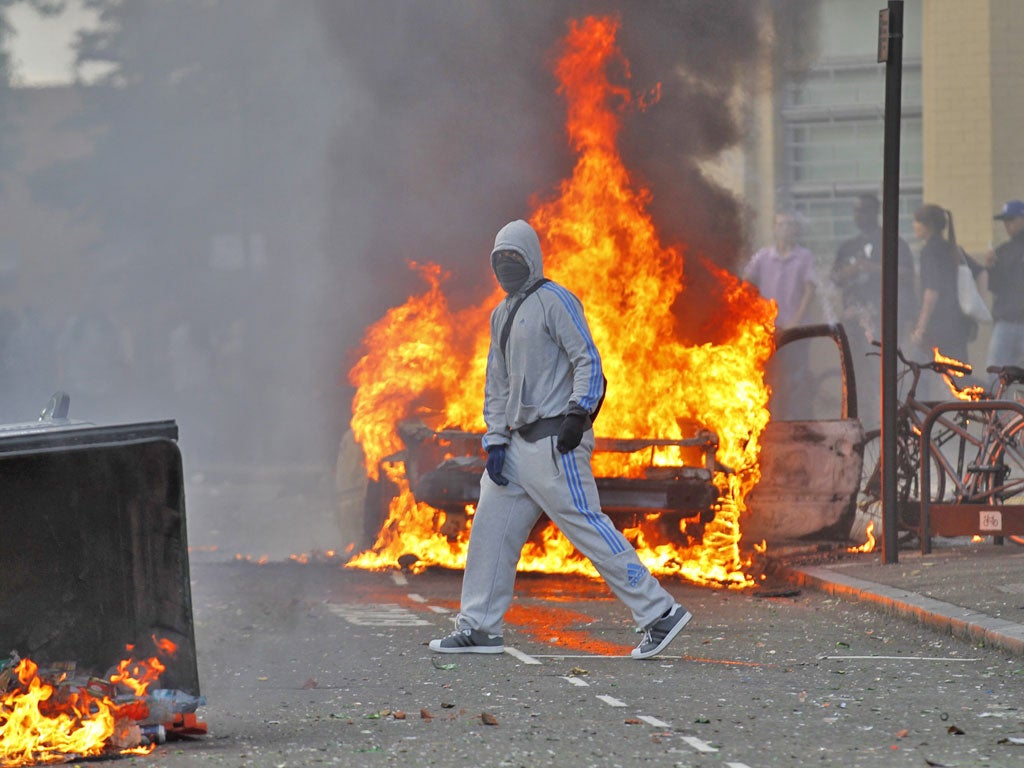The big questions: Do problem families need visits? Will we get an Olympics legacy? Talk or text?
Answered this week by Harriet Sergeant

Your support helps us to tell the story
From reproductive rights to climate change to Big Tech, The Independent is on the ground when the story is developing. Whether it's investigating the financials of Elon Musk's pro-Trump PAC or producing our latest documentary, 'The A Word', which shines a light on the American women fighting for reproductive rights, we know how important it is to parse out the facts from the messaging.
At such a critical moment in US history, we need reporters on the ground. Your donation allows us to keep sending journalists to speak to both sides of the story.
The Independent is trusted by Americans across the entire political spectrum. And unlike many other quality news outlets, we choose not to lock Americans out of our reporting and analysis with paywalls. We believe quality journalism should be available to everyone, paid for by those who can afford it.
Your support makes all the difference.Would daily visits to problem families (as recommended this week by Louise Casey, government adviser on the London riots) help to prevent a repeat of last year's disturbances?
Teenage boys like the ones in the south London gang I befriended are rarely at home. They are on the road committing crime or hanging around street corners with nothing to do. The home visitor envisaged by Casey will join a long list of people – teachers, social workers, probation officers, YOTs, Connexion and Job Centre staff – who fail to provide what young people like my boys require: education, training and a job. "We don't need another social worker," said the leader of the gang, "What we need is a social worker's wage."
Are bankers worse role models than footballers for our nation's youth?
The boys in my gang are clear. Footballers pay their fines. The bankers robbed us and got off scot‑free. Tuggy Tug, the gang leader, rang me from prison recently. "Everyone's got a scam going," he pointed out, "but only us get jail time."
If you had the power, would you decriminalise some or all drugs?
New research into the brain reveals it is still developing well into our twenties. It is imperative we stop teenagers taking drugs both for brain development and the links to schizophrenia in adolescent boys. Bulldog, the only white member of my gang, took drugs from the age of 10 and ended up in the Maudsley. I would decriminalise all but crack and heroin, forbid the selling of drugs to anyone under 21, shift the emphasis of possession from the criminal to one of addiction and roll out a public health campaign on the effect of drugs on the teenage brain.
Will the Olympics produce enough of a legacy for ordinary Londoners?
Never mind the future, what about ordinary Londoners right now? Not even the Blitz locked down London for six weeks. "Zil" lanes are closed until midnight so we cannot even party. Ordinary Londoners are being made to feel the Olympics would run just fine if we were not clogging up the city. Locog's priority is to give good TV and keep the 40,000-strong Olympic "family" happy. With that attitude, what hope of a legacy?
Is, as Doreen Lawrence contends, the Independent Police Complaints Commission failing in its duty?
The IPCC's failure to delve "deep enough" into the murder of Stephen Lawrence puts into question its very existence. As Mrs Lawrence said, "It's still police officers investigating police officers, even though they're retired." The murder of her son was a racist act. But the suspicion is that the botched police investigation was due to the corrupt relationship between lead detectives in the Met and known criminals such as Clifford Norris – whose son was later convicted of Stephen Lawrence's death. To the bitterness of many officers, the IPCC is perceived to have allowed the police to be labelled a racist organisation rather than investigate the Met for corruption. It is a decision I still find startling.
Is Hilary Benn right to seek a cap on rising rents in the private sector?
The last time that was tried in the 1970s, landlords fled the market.
Is it a regrettable thing that texting has overtaken talking on the phone?
Not where love is concerned. One of the joys of a modern romance is the exchange of texts. Sexy, funny, unexpectedly emotional, they ambush you throughout the day, a subversive delight compared with the telephone call. So for love – text me every time.
Harriet Sergeant is the author of 'Among the Hoods – My Years with a Teenage Gang', published this week by Faber. It describes a middle‑class woman's four-year friendship with a London gang. She is also a Fellow of the Centre for Policy Studies and author of six reports including 'Wasted – the Betrayal of White Working-Class and Black Caribbean Boys'.
Join our commenting forum
Join thought-provoking conversations, follow other Independent readers and see their replies
Comments